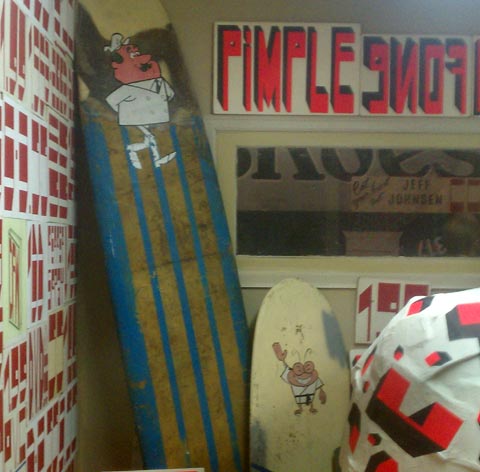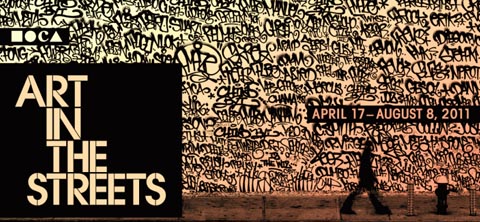
“Art in the Streets,” the first major museum survey of street art and graffiti, opened last week at the Museum of Contemporary Art in Los Angeles and I highly recommend it. It ranks among the most fun art exhibits I’ve ever attended, and features lots of eye candy in the form of large-scale installations that at times can feel more like an amusement park than a museum. As a first-of-its-kind exhibition, it’s also guaranteed to spark plenty of vigorous debate about what was chosen for inclusion and what wasn’t, not to mention all the controversy it’s already generated from the Blu mural debacle to irrational police fury.
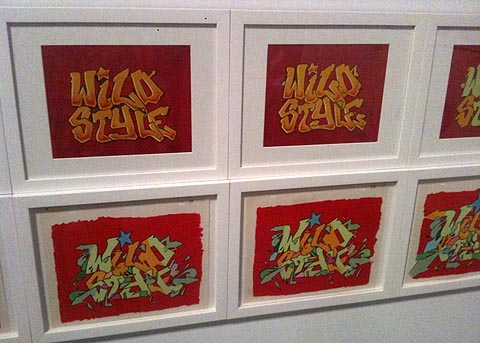
Though minimal, animated works do have a presence in the show. A sequence of animation drawings from the opening of the influential early-1980s documentary Wild Style is displayed in one area. The sequence (watch it HERE) was designed by Charlie Ahearn, who directed the film, and graffiti writer Zephyr. In the “Battle Station”, a fantastic recreation of the Tribeca loft of the late Rammellzee, a mograph music video called “Alpha’s Bet” is screened on a television. The video, posted below, was directed by Celia Bullwinkel in 2002. (Disclosure: I am a personal friend of Celia and attended the show with her.)
Graffiti/street art has a complicated relationship with animation, which is a thread that the curators of the exhibit never explore. While the show features a handful of artists, like the aforementioned Rammellzee, who have the ability to express personal ideas beyond the confines of referential pop culture, many of the artists from Kenny Scharf to Banksy to the anonymous graffiti writers who painted on the sides of subway cars have relied on animated characters as their lingua franca for communicating with the general public. These cartoon characters, to my surprise, are rarely used to make any statement or to subvert the original intentions of the characters, a la Wally Wood’s infamous Disney “orgy” drawing. For graffiti and street artists, the act of recreating popular cartoon iconography is considered an accomplishment in and of itself.
If one looks only at the art displayed in the show, the conclusion could be drawn that things are beginning to change. More recent artists, like the Brazilian twins Os Gêmeos, have dispensed with drawing pre-existing animated characters and are creating libraries of new cartoon characters drawn in their personal styles. Like any vital art form, street art is evolving, and the evolution points in a positive direction that emphasizes personal creativity.
Below are a few of the cartoon references I saw in the show.
Will you take the Mickey or Woody train?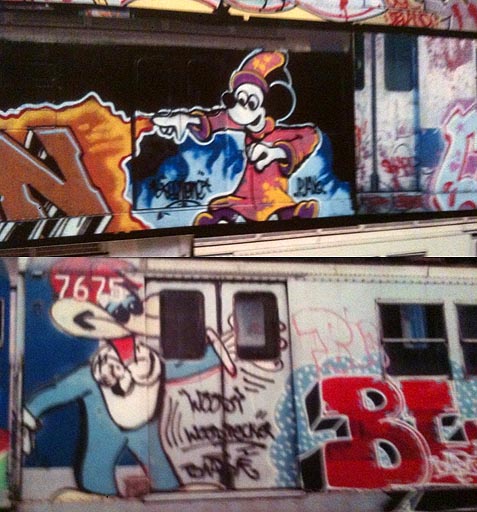
Kenny Scharf began doing Hanna-Barbera tributes in 1981, long before anybody else considered celebrating Hanna-Barbera’s cruddiness.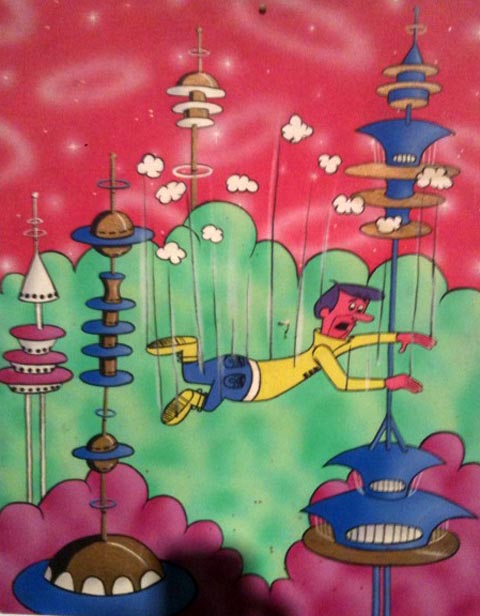
Only in the world of graffiti could Hanna-Barbera and DePatie-Freleng characters co-exist.